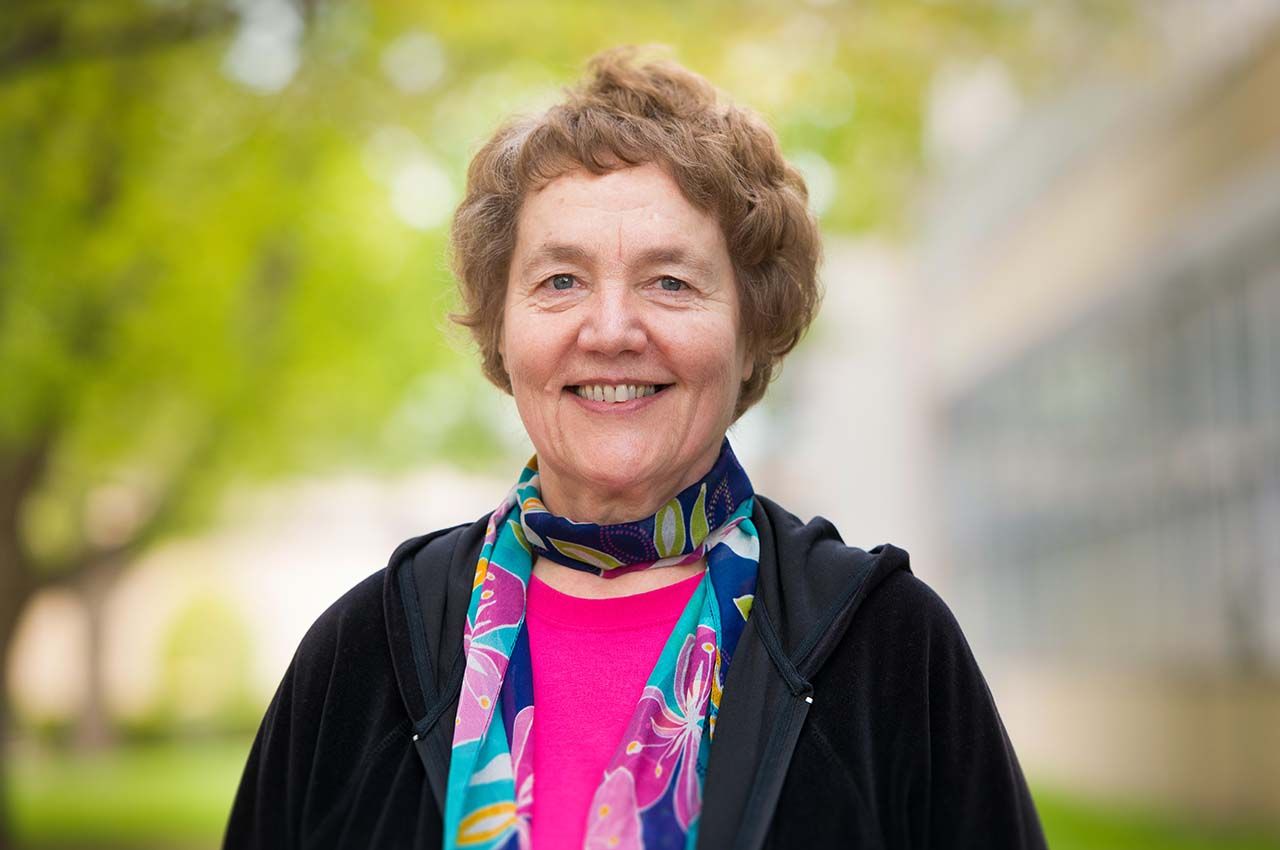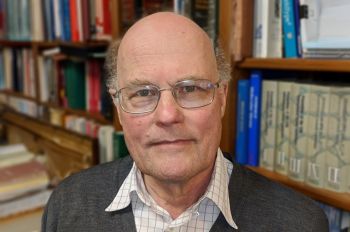Lewis College’s Newest Distinguished Professor Operates at the Crossroads of Science and Values

As the highest honor awarded, Illinois Institute of Technology reserves the title of Distinguished Professor for only its most acclaimed faculty members. Entering 2023, just six of the university’s more than 300 current professors hold the title.
This spring, the prestigious group will add two more members.
Illinois Tech will award Professor of Sociology Ullica Segerstrale the title of Distinguished Professor, acknowledging her extraordinary academic career, impressive publication record, external recognition for her research and intellectual contributions, and outstanding performance as a professor. She has earned foundation support from prestigious sponsors in academia, including the Guggenheim Foundation, the Rockefeller Foundation, Sloan Foundation, and the American Philosophical Society, as well as support from the Fulbright program and the Academy of Finland.
“It means a lot because it’s a very rare recognition,” says Segerstrale. “My impression was that it was given mostly to people who have been excelling in their particular field….I have my Ph.D. in sociology, but I operate in a very interdisciplinary way.”
Segerstrale joined Illinois Tech in 1988, having earned her master’s degrees in organic chemistry, sociology, and communications, as well as a Ph.D. in sociology. As a sociologist of science, Segerstrale sees herself working at the crossroads of subjective experience and objective reality—between science and values.
“I belonged to those kind of students who had not found themselves….I ended up studying chemistry, biochemistry, physics, mathematics, all that kind of stuff; I never regretted that,” says Segerstrale. “Sociology somehow was not on the map at all in our school; psychology was, but on a different track….At the university, as I became a student leader in the natural sciences, I realized that I really did not know what was going on very much in the world or in society. The people who sounded very confident were the people who studied social sciences, so I decided, ‘Heck, that’s something I should be studying.’”
While earning her Ph.D. from Harvard University, Segerstrale’s dissertation weighed in on the sociobiology controversy that pitted two larger academic camps against each other: those who found the biological study of human nature legitimate, and those who didn’t. It all started with the surprise attack on biologist Edward Wilson and his new book, Sociobiology: The New Synthesis, led by his own Harvard biology colleagues Richard Lewontin and Stephen Jay Gould. Segerstrale delved beyond the surface of the often volatile disagreements in the mounting nature-nurture controversy, both scientific and moral/political, aiming at uncovering the reasons for the positions of the scientists in both camps.
“I decided that I can actually go back to do what I have been always been wondering: what scientists actually think about and how they come to hold a particular scientific point of view,” says Segerstrale. “That is something that I have genuinely been curious about….So, it became natural for me to try to study science as a sociologist.”
Segerstrale’s book, Defenders of the Truth: The Battle for Science in the Sociobiology Debate and Beyond—one of her four published books, with a fifth scheduled for release this year—built upon her Ph.D. thesis and new research, intertwining the many sides of what became a trans-Atlantic sociobiology debate during the last quarter of the twentieth century. With both major factions insisting that they had the truth on their side, Segerstrale’s intellectual flexibility shone bright as she was able to interview all sides and cut through the fierce attacks slung back and forth. She revealed the conflict as a battle between two vastly different approaches to science—especially evolutionary theory—coupled to different views about the social role of the scientist.
“It is no mean achievement to understand the complexities of a large scientific area, and to present all sides of various debates,” says University of Oxford Professor of Theoretical Biology Alan Grafen in a letter supporting her nomination for the title of Distinguished Professor. “Ullica did so sensitively and intelligently, and I read Defenders to understand my own subject better.”
Garnering an international reputation for her expansive scholarship, Segerstrale is a member of the Finnish Society of Sciences and Letters, the European Academy of Sciences and Arts, and a Fellow of the World Academy of Art and Science. Her service to Illinois Tech has included roles as chair of the Department of Social Sciences, director of the prestigious Camras Scholars Program, and sitting on dozens of university boards and committees, in addition to regularly advising Ph.D. candidates in architecture.
Perhaps the most impressive aspect of Segerstrale’s career, however, is the steadfast commitment she continues to show to her students in the classroom.
Through her career as distinguished international leader—giving more than 200 academic presentations across the globe; publishing 115 articles, chapters, and essays; and serving on five editorial boards—Segerstrale has maintained an exceptional standard as an educator, winning the 2017 Illinois Tech Trustees Award for Outstanding Undergraduate Teaching.
“I think it’s fun; it’s fun and it’s an adventure,” says Segerstrale about teaching. “I feel that I’m doing something for them. I’m opening up their eyes for the social world, for systems thinking, for the big picture….When you see how they get it, it’s a wonderful feeling.”




